
Was Harvey Weinstein thanked more often than God at the Oscars?
I analysed almost 2,000 Oscar speeches to discover if the claim that Harvey Weinstein was thanked more often than God is true. Plus, we'll find out which Hollywood icon is bigger than both of them.
Some see the Oscars as the pinnacle of artistic achievement, a night of cinematic excellence that honours the best of the best.
Others view it a TV reality show in which over-paid and over-dressed frenemies hand arbitrary awards to each other for incomparably subjective artistic performances.
Whatever your view, there is no doubt that what we see and hear on stage reveals a lot about how Hollywood operates.
During the rise of the #MeToo movement, it was frequently claimed that Harvey Weinstein was thanked more often than God at the Oscars. This claim reflected his power and dominance, but it also highlighted the sycophantic fawning that is often required in a semi-closed industry of narcissistic egomaniacs.
But is it true?
To answer this, I crunched the data on 1,884 speeches given by winners at the Oscars.
Thank you for coming to my TED talk Oscars speech
The Academy Awards have evolved from a private event held in a ballroom to a globally televised spectacle. So it’s perhaps not surprising that the nature of the speeches has also changed. Early speeches were often brief, with winners offering little more than a few words of thanks.
A masterclass in brevity and gratitude came in 1991 when Joe Pesci collected his statue for Goodfellas with just five words "It’s my privilege. Thank you".
We should all be more like Joe Pesci.
Over the past century, the length of Oscar speeches has ballooned, peaking in the 2010s at almost 300 words per speech.
In 2010, the Academy sought to combat this verbosity by reiterating their 45-second rule. In response, some winners sped through their acknowledgements, while others used humour or emotion to buy extra time before the music signalled them off. Occasionally, the orchestra has been ignored entirely, with speeches like Adrien Brody’s 2003 win for The Pianist running well over the limit.
It is perhaps no surprise that screenwriters are the most long-winded. The average speech for Best Adapted Screenplay was more than twice the length of those given by winners of Sound Editing, Editing, Production Design, Music, Visual Effects, Makeup and Hair, Documentary, Costume, and Sound Mixing.
Longer speeches have allowed for more personal storytelling, political statements, and heartfelt dedications.
Acceptance speeches in the middle of the 20th century were exactly that, a chance to accept the award and say thank you. Over time, they have evolved into a platform to express opinions, share emotions, and highlight personal journeys.
How thankful are Oscar winners?
With that platform comes the opportunity to name-check those who have helped in your arduous battle for fame, money, and acclaim.
For each speech, I classified how many people received a personal thanks, either by name, such as "Alfred Hitchcock," by role, such as "my therapist," or by relationship, such as "my mother."
Few Oscar speeches capture the contrast between excessive gratitude and bold simplicity as well as the 1998 Titanic Best Picture win.
Producers Jon Landau and James Cameron took to the stage. Landau started, listing a staggering 54 people by name in under 66 seconds. I have submitted this to my colleagues at Guinness World Records for the greatest number of people thanked in an Oscar speech - time will tell if it makes it into the book.
He was then followed by fellow producer James Cameron, who thanked nobody.
(Ok, that’s true but a little unfair to Cameron. He did note that Jon had "thanked everybody" and asked for a few seconds of silence in remembrance of the 1,500 men, women, and children who died in connection with Titanic - the ship, not the shoot).
The average Oscar speech today thanks around nine people.
Actresses name-check the greatest number of people, with an average of 13.8 per speech this century.
“I don't have friends, I got family”
Romantic partners have always been at the top of the list, even when described as "my trophy wife", hopefully in jest.
Mothers were thanked far more often than fathers. Wives were mentioned more than husbands, though this is likely a consequence of the massive gender imbalance I noted in my recent piece How do women fare in gender-neutral Oscar categories?
The most commonly thanked types of people were directors and producers.
And now we get closer to our original question, as Harvey Weinstein was a producer. He was a powerful and overbearing figure who fought relentlessly to get projects made. He also played dirty to win Oscars, using aggressive campaigning tactics that reshaped awards season strategy.
But before we are ready to deal with Harvey, we must first check in with God.
Pray or play deals
Religious mentions were not always straightforward. Some speeches referenced spirits or the afterlife, while others vaguely invoked divine inspiration. I have added more details in the notes at the end of the article to explain how I found God, but for now, just have faith that I did.
Religious thanks have also been increasing and peaked in the 2000s, which was also when Harvey Weinstein was at his busiest. (Perhaps Hollywood has its own version of Newton's Third Law, where every action has an equal and opposite reaction?)
Currently, over one in five speeches contain a truly religious reference.
With all that preamble over, we are ready to answer our core question.
Was Harvey Weinstein thanked more frequently than God?
In a word - No. Thank God.
Across all speeches, God was thanked 4.3% of the time, whereas Harvey was mentioned in just 1.5%.
However, God had a head start. When we focus on the period when Harvey Weinstein was at his most powerful, the race was much closer.
In the 1990s, Harvey received thanks in 5.4% of speeches, compared to God's 6.4%. In the 2000s, Harvey dropped to 4.5%, but God rose to 7%.
But there was someone who actually was thanked more often than God during that period.
Harvey Weinstein is the second most commonly thanked living person in Oscar speeches, coming in behind… Steven Spielberg.
Thanks to his directing, producing and generally being a busy man about Tinseltown, in both the 1980s and 1990s, Spielberg was thanked more often than God.
The only other person who can claim to have been “bigger than God” was Peter Jackson, who achieved his status in the 2000s, with 9.0% compared to God's 7.0%.
In every other decade, God remained the most thanked figure.
Across all years, the most thanked living people have been Steven Spielberg, Harvey Weinstein, George Lucas, Francis Ford Coppola, Jeffrey Katzenberg, Peter Jackson, Sheila Nevins, and Martin Scorsese.
And with that… it’s been my privilege. Thank you
Epilogue
I reached out to the Oscar’s most thanked woman, Shelia Nevins, for comment. After just one phone call, I could see exactly why she earned that place.
With a career spanning over six decades, Nevins has produced more than 1,000 documentaries, racking up 31 Primetime Emmys, 42 Peabody Awards, and 26 Oscars along the way. As the long-time head of HBO Documentary Films, she not only shaped the genre but also nurtured countless filmmakers, making her a near-obligatory mention in many acceptance speeches.
On learning of her status as the most thanked woman in Oscar history, she said:
I was very surprised to see that, but I have been doing it for so long. I have been doing the grunt work for so long. I think when people get up there, they decide for me. So they say, 'Thank you’. It is lovely to be thanked, and it really hurts when you are not thanked. I have been thanked for things I did not deserve, and I have been not thanked for things I bled over.
I asked her if she was surprised that Steven Spielberg was thanked more than God.
No, because God does not attend. When people thank God, they look up. Have you noticed that? They always look up. When they thank Steven Spielberg, they look out. Also, God cannot give them their next job - Steven Spielberg can.
And there we have it. Shelia summed up what we’ve learned today better than I ever could. Thank you, Shelia.
Notes
This analysis was based on full transcripts of 1,884 Oscar acceptance speeches given between 1939 and 2023, sourced from the official Oscars website. Some charts focus only on 2000 to 2023, as speech lengths increased significantly toward the end of the 20th century, making direct comparisons across eight decades less reliable. In such cases, I prioritised more recent data to better reflect the modern Oscars. Unless stated otherwise, all data covers the full period from 1939 to 2023.
There is a difference between "a speech" and an individual winner’s contribution to that speech. In most cases, a single winner spoke, so everything they said counted as "the speech". However, when multiple winners took the stage, I counted the combined words of all speakers as a single speech.
I did not count instances where people were thanked as part of a vague group, such as "the Academy", "my cast", "American friends of Poland", "the Kenyan people", or simply "America".
Over the years, the Academy has frequently changed award structures and category names, often splitting or merging them. To keep things consistent, I grouped similar awards together. For example, cinematography was once divided into black-and-white and colour categories. Music scoring awards have also taken many forms, from Original Dramatic Score to Scoring of a Musical Picture.
Finding God has eluded many people over the years and He certainly presented some challenges in this research. Despite being everywhere, He was not always easy to identify. A simple word search for "God" was unreliable because it picked up false positives such as "God, what a night!". Instead, I focused on whether a winner was genuinely directing thanks to a higher power. This meant that Sean Penn’s exclamation, "God, I really thank Clint Eastwood professionally and humanly for coming into my life" did not count, but Josie MacAvin’s 1985 declaration, "First of all, I want to thank The Man Above" did1.
I have assumed that Clint Eastwood was not in some way on top of her at the time.


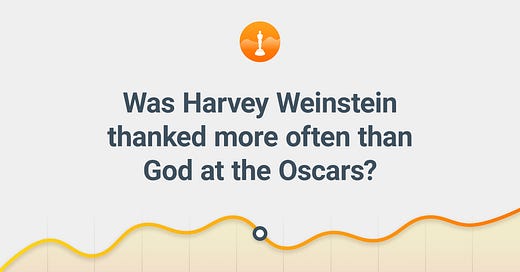


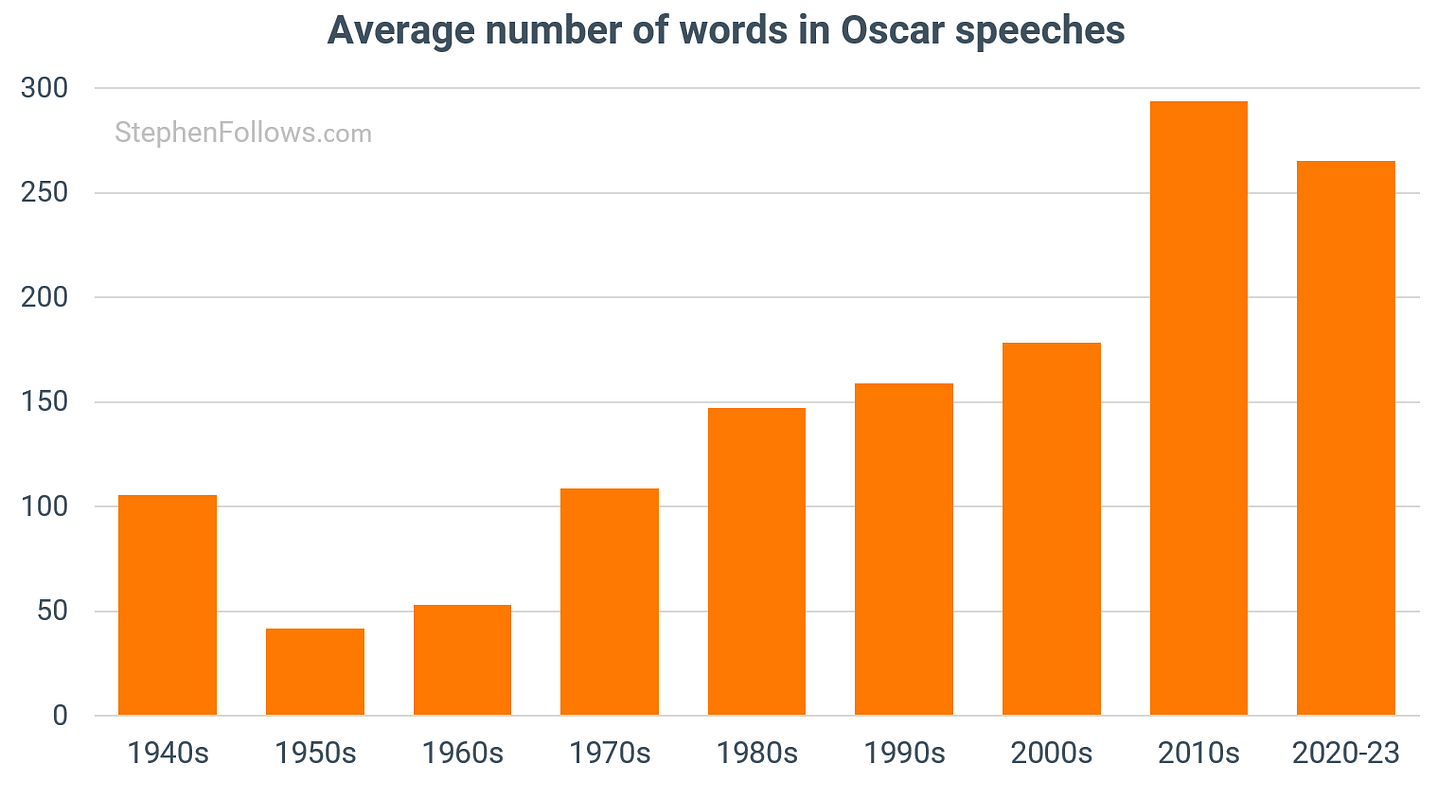
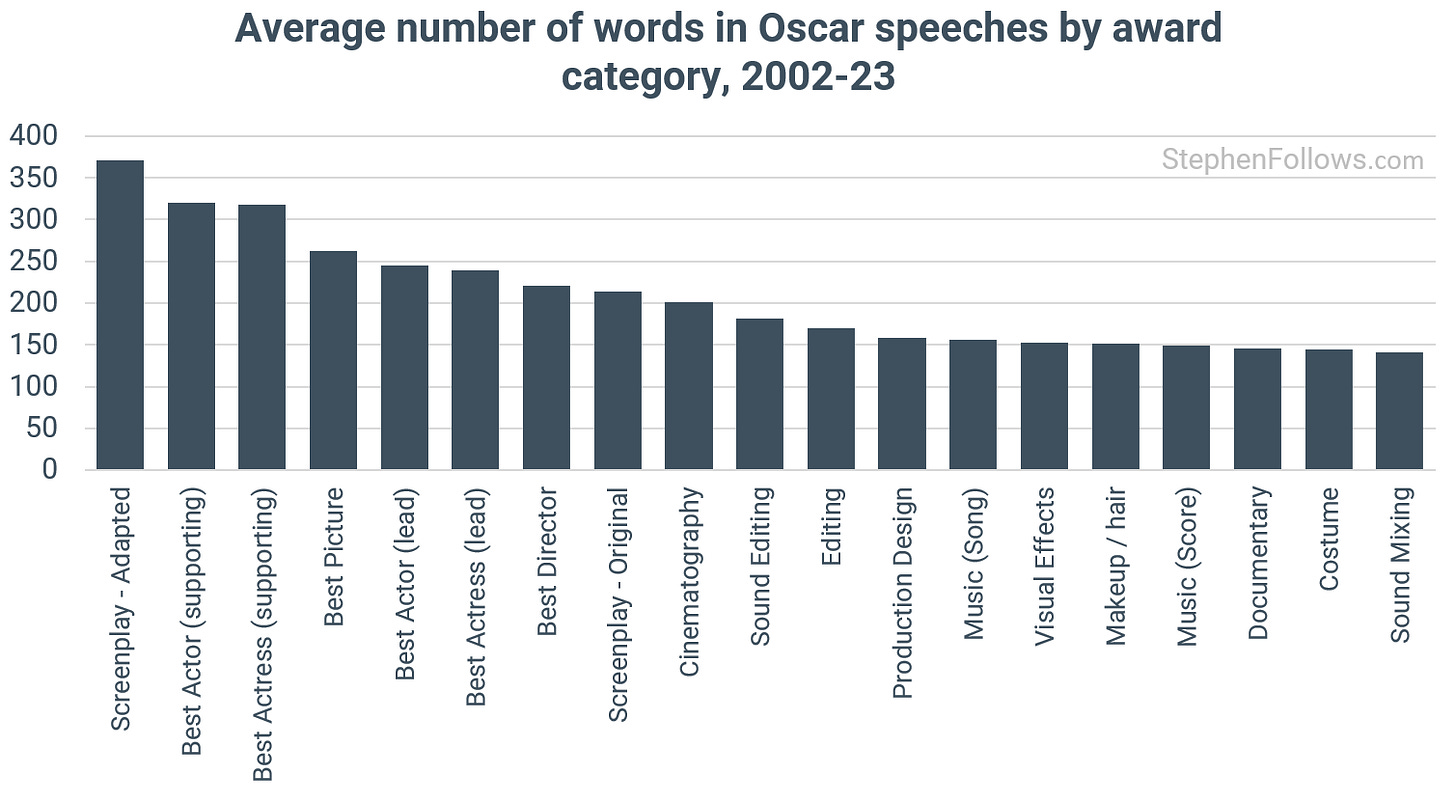
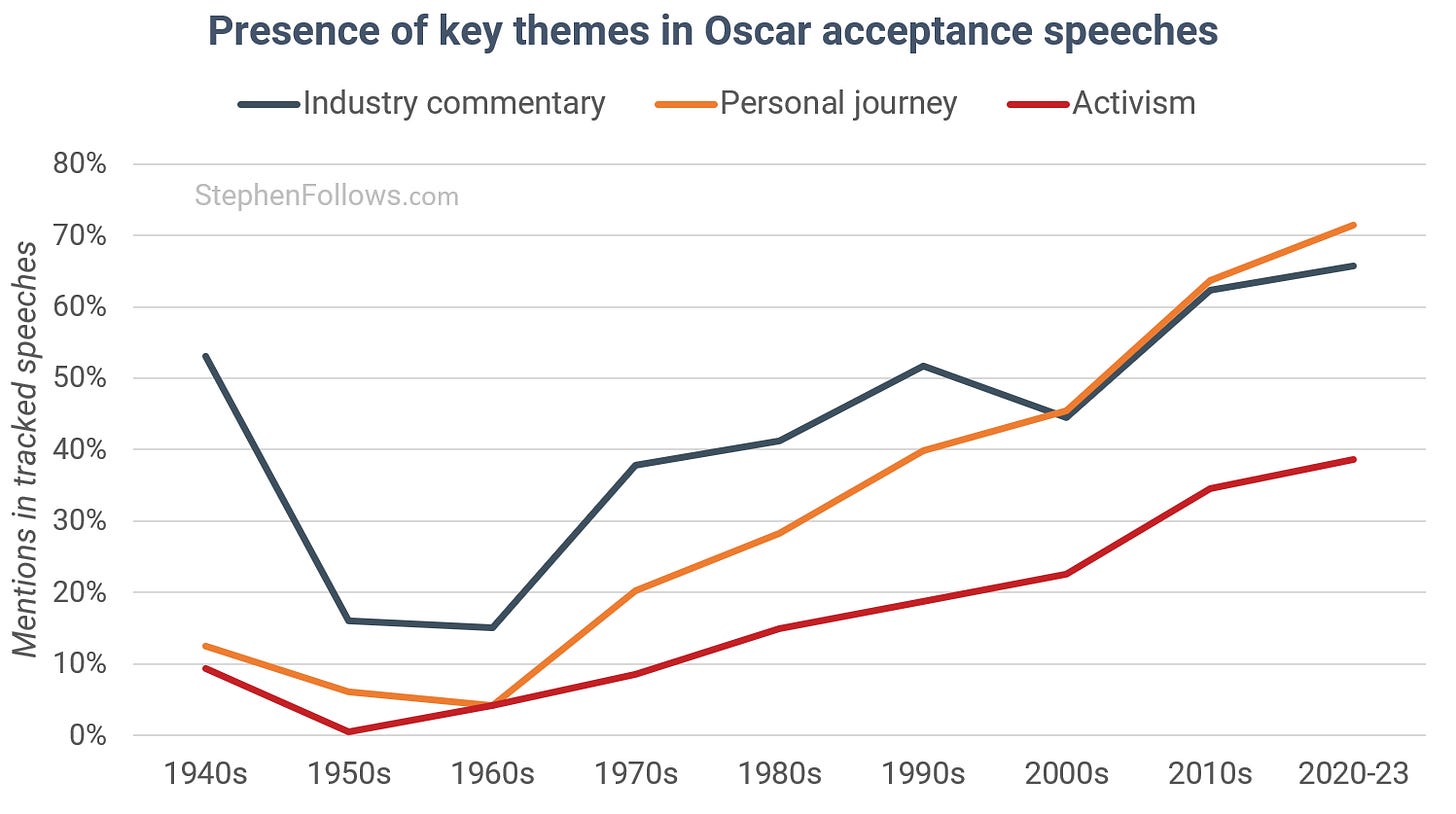
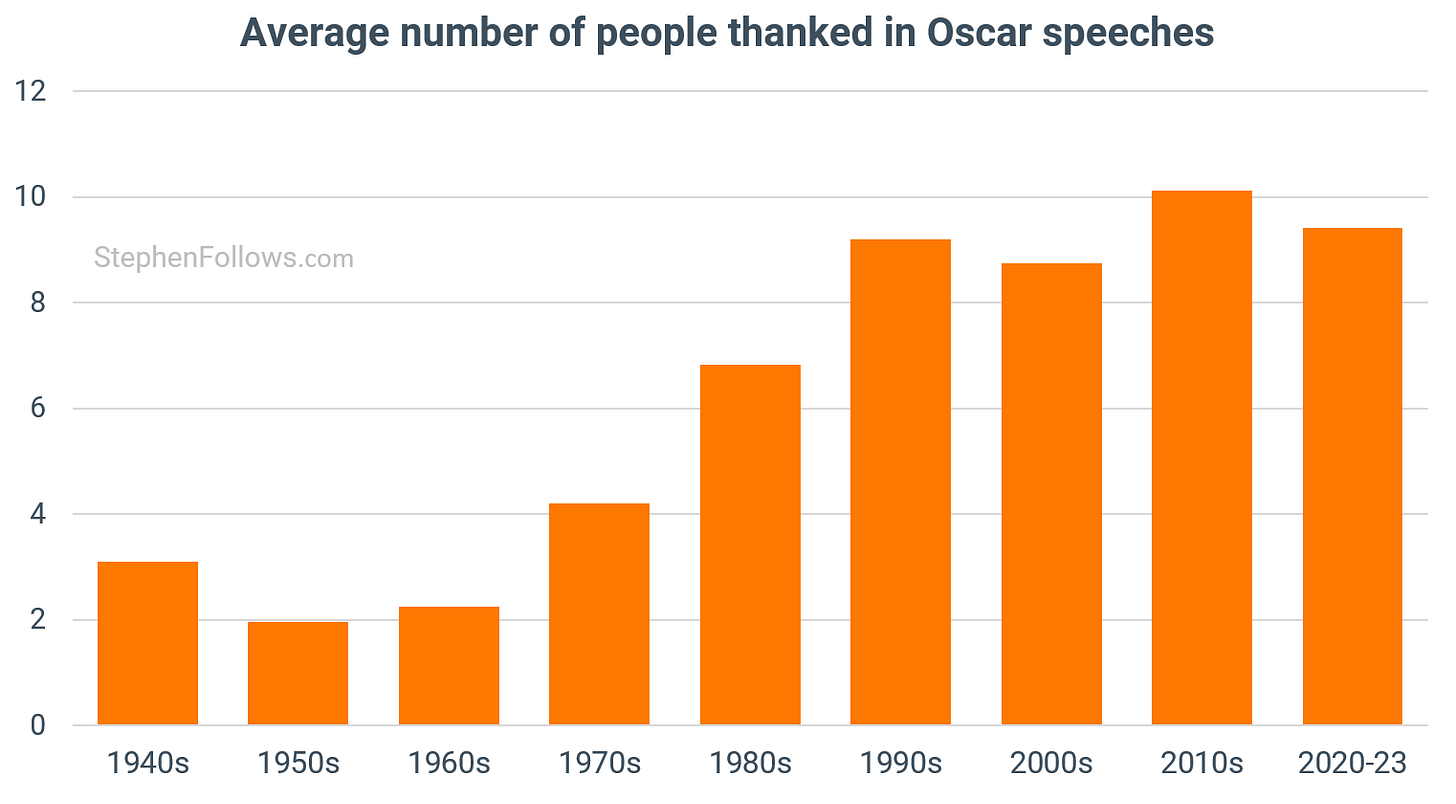
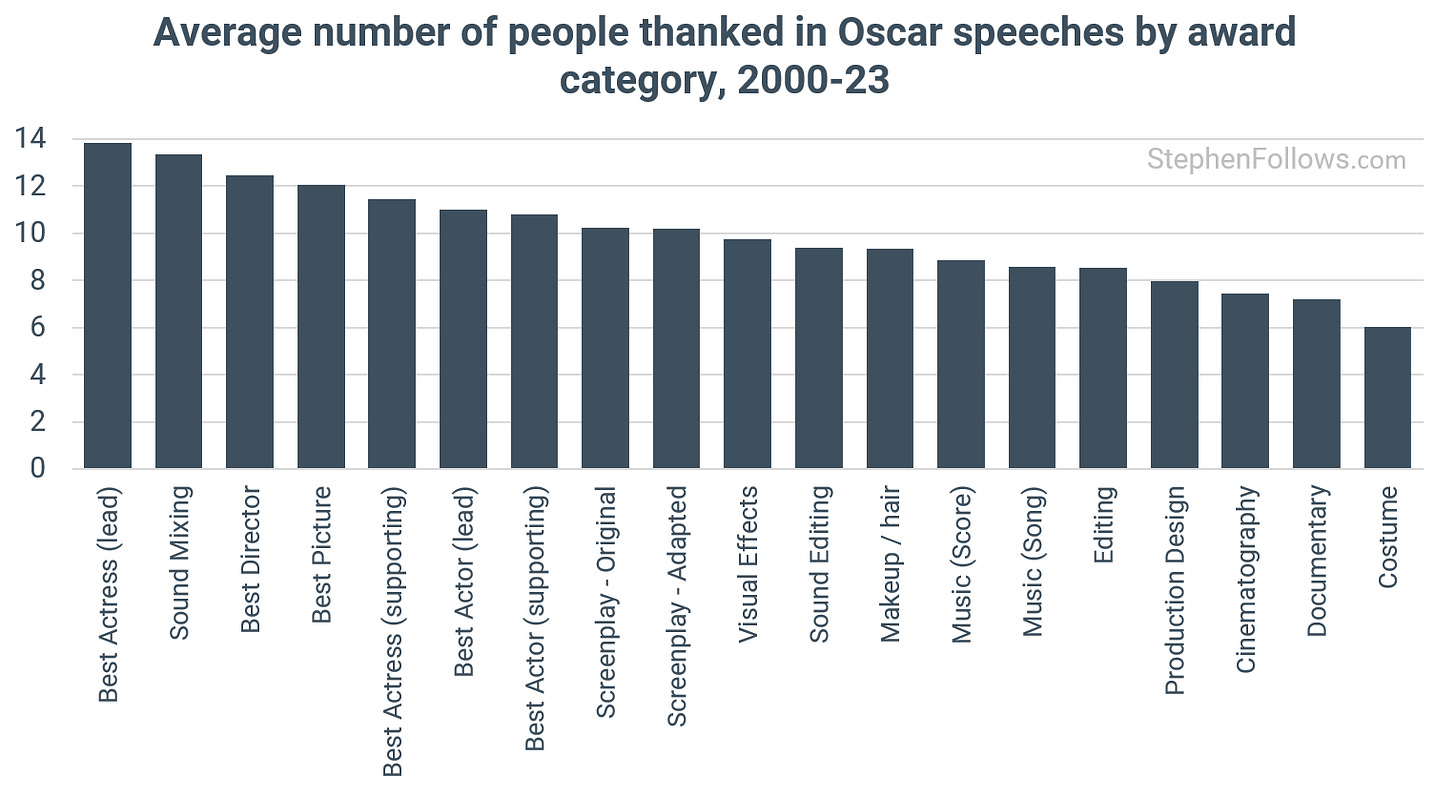
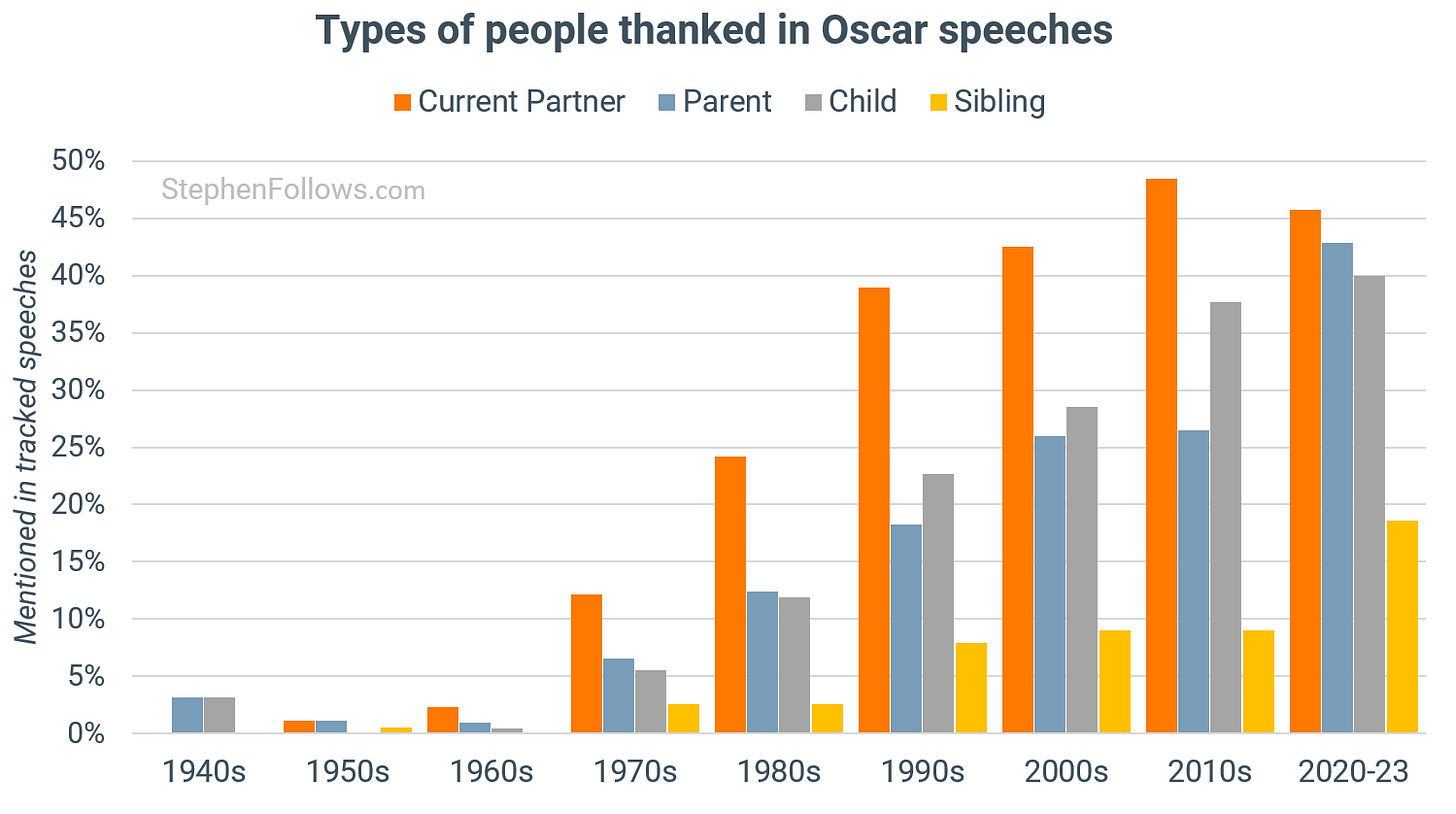
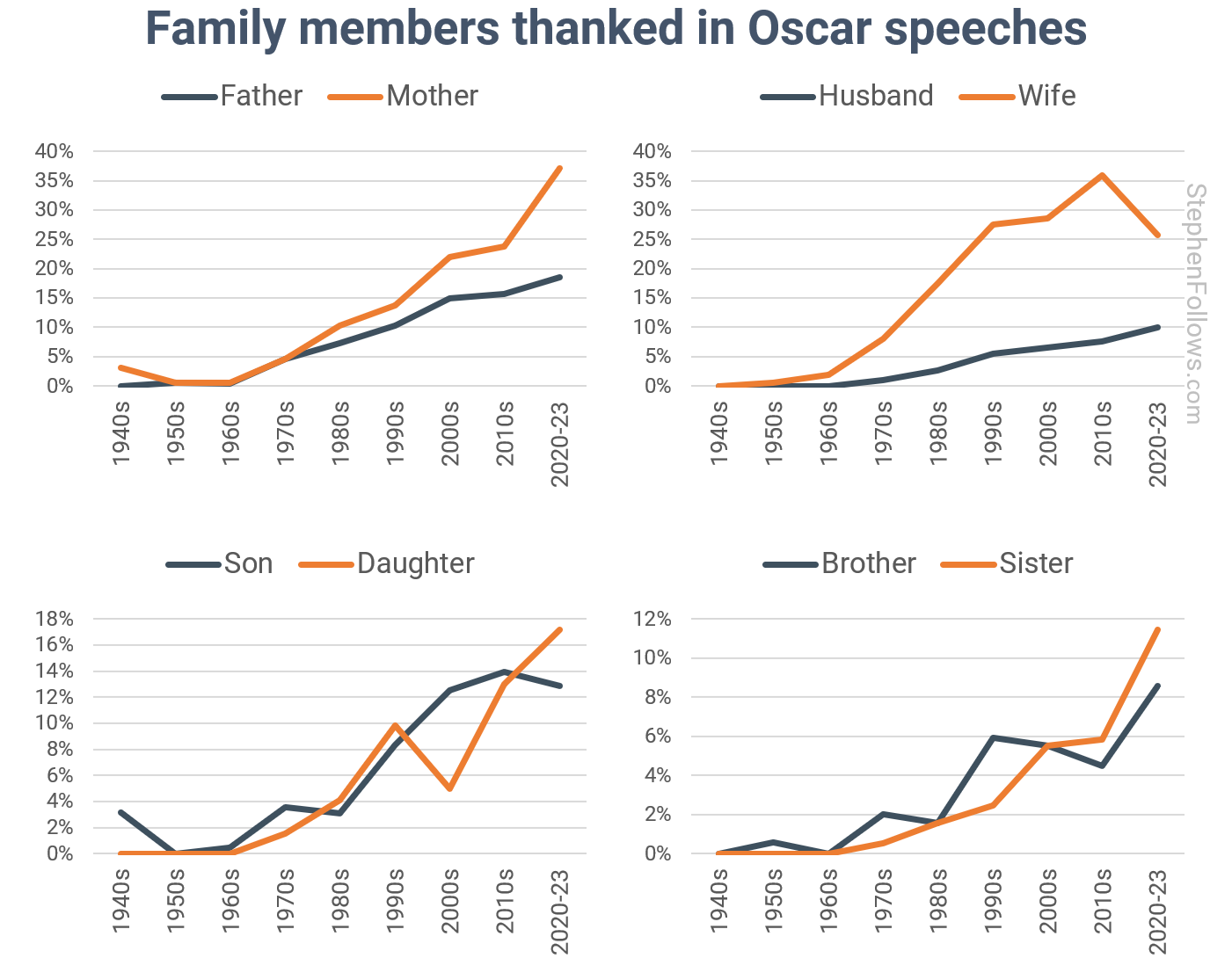
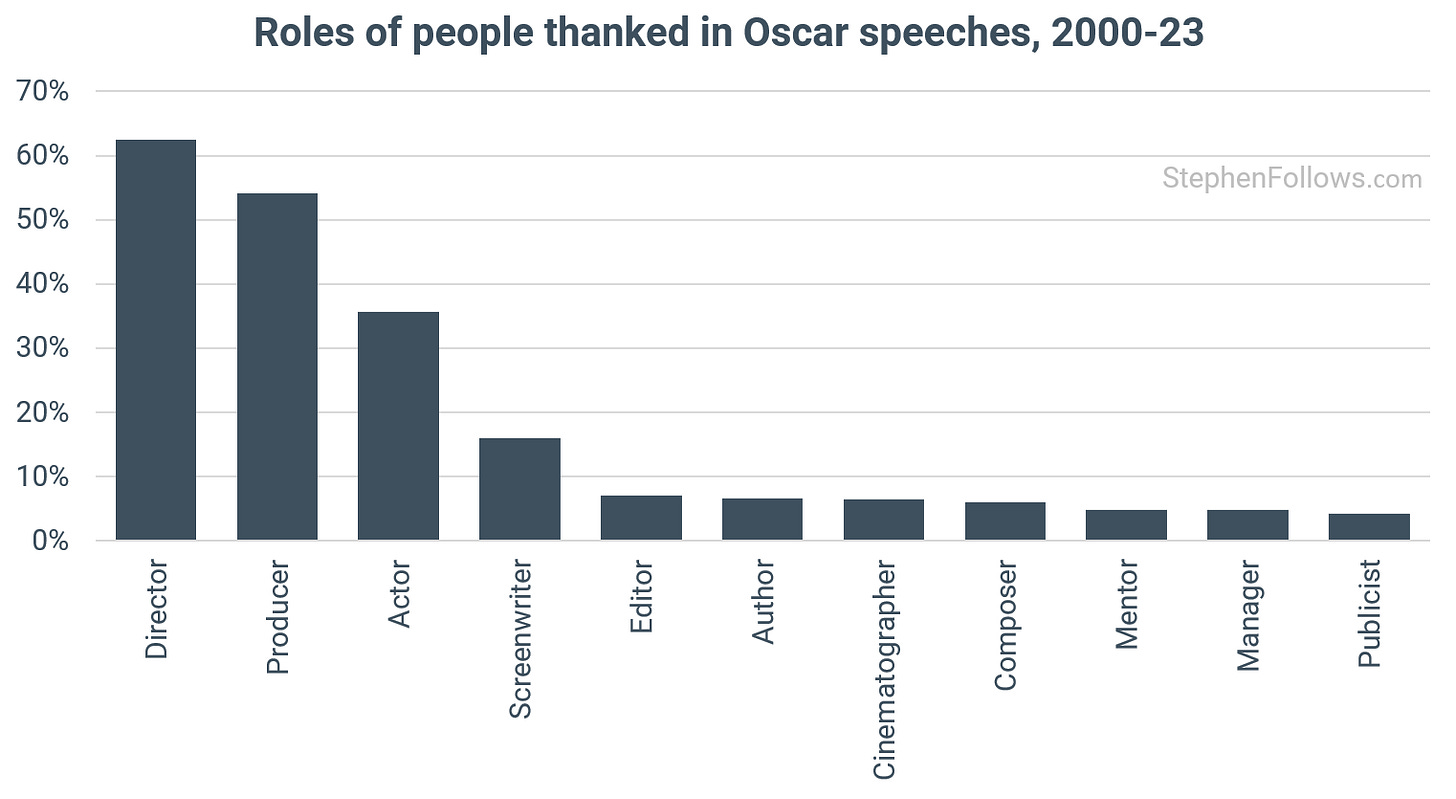
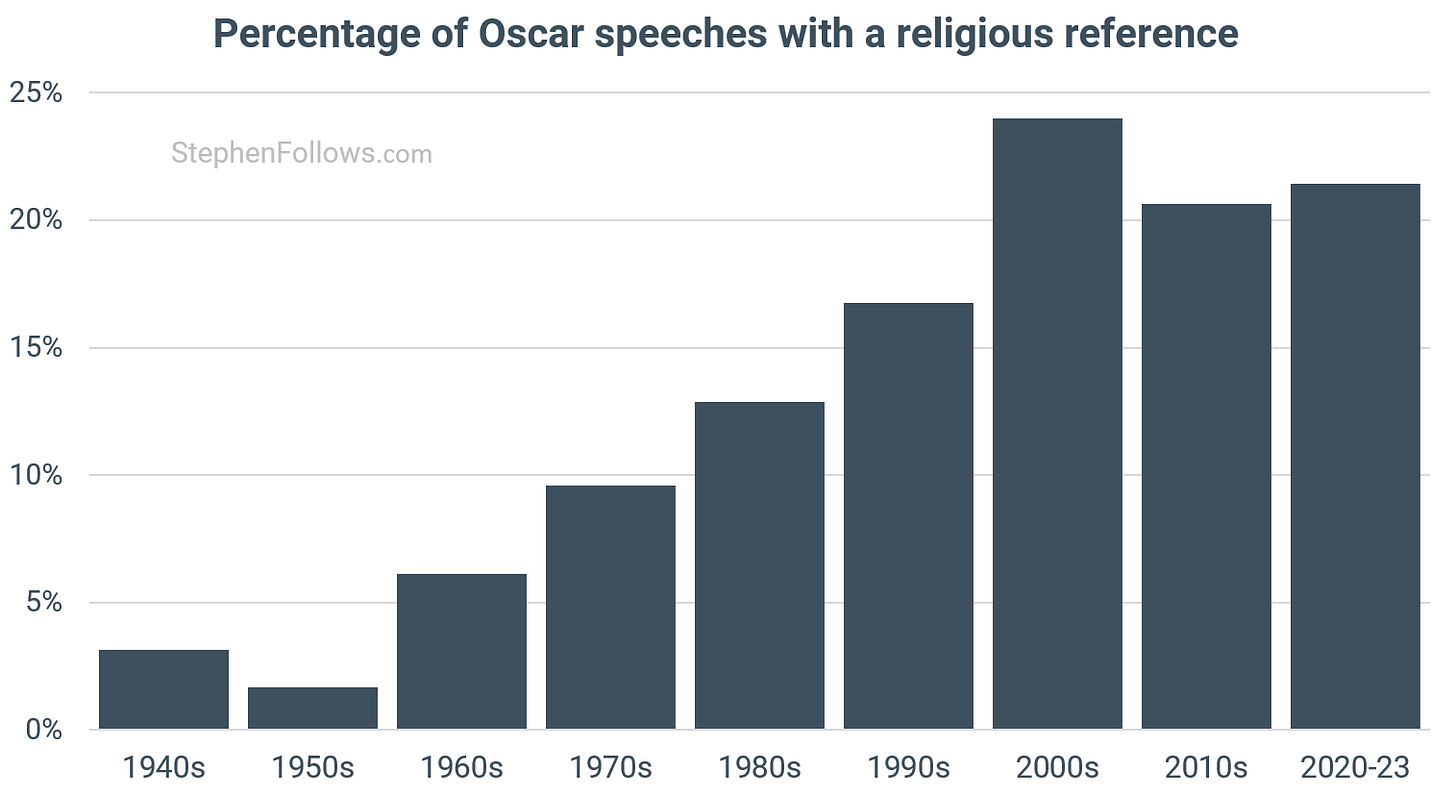
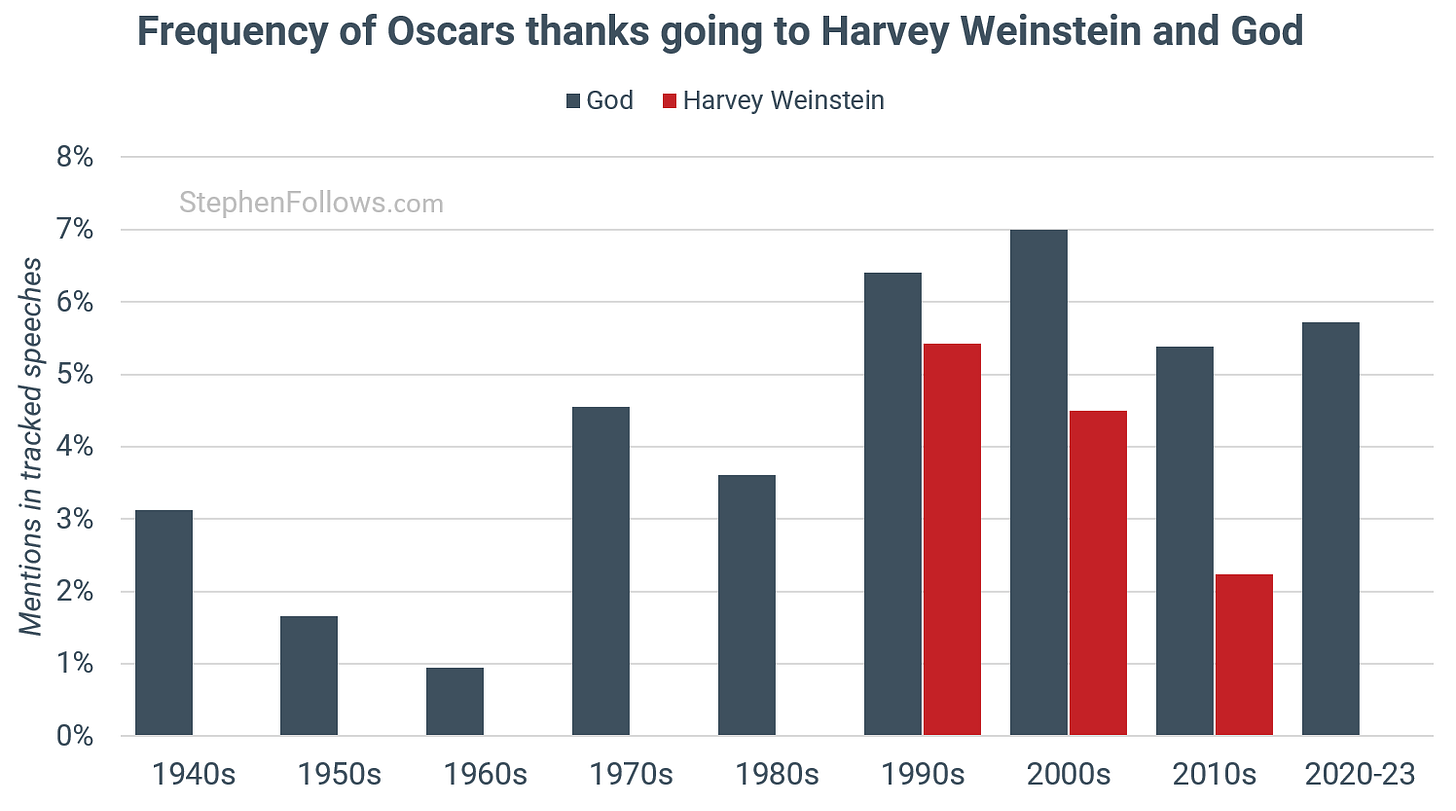
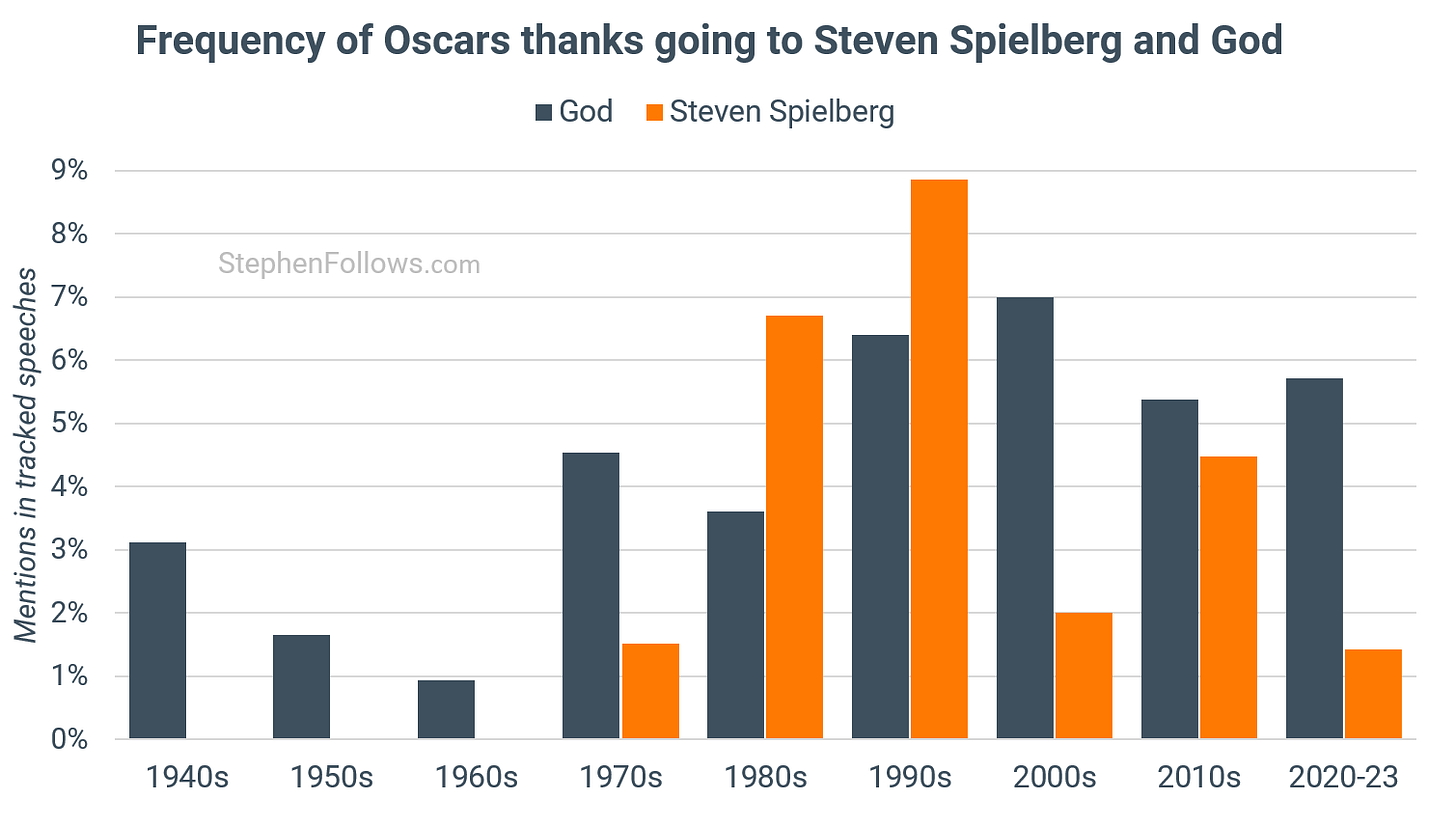





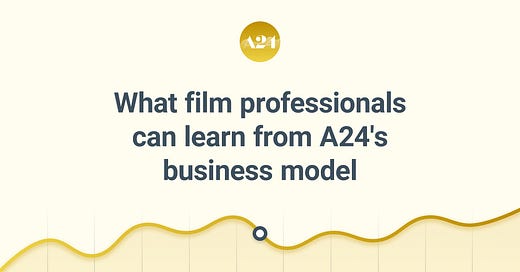

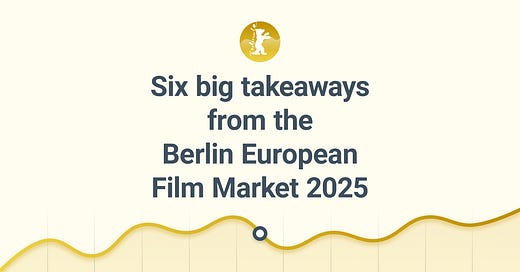

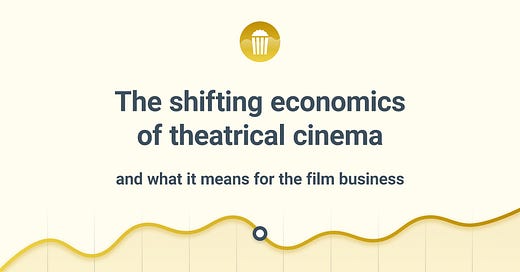

Another captivating article. There aren't many circumstances where this information will come in handy, but I sure hope it does!
Also, it stings to see how comparatively little the screenwriters are thanked!
Oh yes! data and anecdotes and a fresh lens on a familiar subject. Lovely! thank you